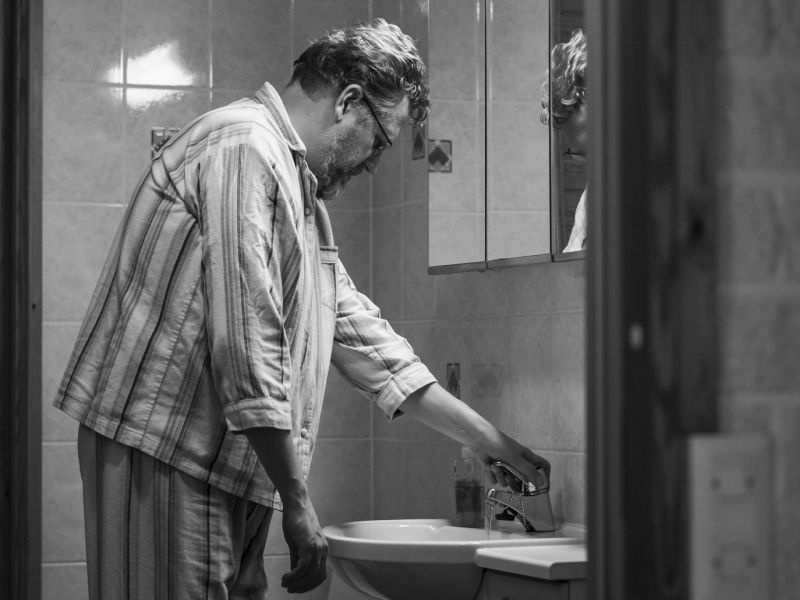
Researchers in Spain followed more than 19,000 adults with high blood pressure. They found that people who took all their blood pressure meds at night had lower blood pressure around the clock compared to volunteers who took their medication in the morning.
"The findings are highly consistent regardless of sex, age, presence of diabetes or kidney disease, and other major known factors of increased risk," said study lead author Ramon Hermida.
Hermida is director of bioengineering and chronobiology at the University of Vigo's Atlantic Research Center for Information and Communication Technologies.
"Conventionally, most patients ingest their medication in the morning," said Hermida, "although no single trial ever documented this to be preferable." No guidelines are currently in place regarding the best time to take the drugs, he added.
A New York City heart doctor believes consistency in taking your blood pressure pills will deliver optimal protection.
"The key here is routines," said Dr. Satjit Bhusri, a cardiologist at Lenox Hill Hospital. "Not missing a dose. We know one thing worse than an elevated blood pressure is swings in blood pressure due to periodic non-compliance."
To achieve compliance, it's important to stick to a routine, Bhusri said.
Besides compliance, factors such as emotions and simultaneous use of other medications can affect a drug's effectiveness, Bhusri noted.
The investigation - called the Hygia Chronotherapy Trial - ran between 2008 and 2018. It involved about 10,600 men and 8,500 women in northern Spain, aged 18 and older.
All had been diagnosed with high blood pressure prior to the study. The patients were tracked for a little over six years on average.
Study participants were randomly assigned to take all of their blood pressure pills just once a day, either in the morning or at bedtime.
Blood pressure was repeatedly assessed throughout the study. At least once a year, participants also wore a mobile monitor, which logged multiple blood pressure readings over two days.
In the end, the investigators found that those who always took their meds at night saw their risk of dying as a result of heart or blood vessel problems plunge by two-thirds, compared with those who always took them in the morning.
A bedtime drug regimen was also linked to a 44% drop in heart attack risk; a 40% drop in the risk for surgery to widen arterial pathways (coronary revascularization); a 42% lower risk for heart failure; and a 49% dip in stroke risk, the researchers reported.
Overall, the reduction in risk for cardiovascular-related death was 45%, the findings showed.
Why? Because of better nighttime blood pressure control, Hermida said.
"We have previously documented that asleep blood pressure is the most significant marker of cardiovascular risk," he explained. This is true whether daytime measurements taken at the doctor's office are normal or elevated.
The yearly 48-hour mobile blood pressure readings showed that patients who took their meds at night had "significantly reduced" blood pressure while asleep, compared with their peers who followed a morning medication routine.
Hermida did acknowledge a few caveats. For one, all study participants had to follow a typical sleep routine: up during the day and asleep at night. That means the study cannot speak to how medication routines might affect individuals who habitually work at night.
Also, all of the participants were white. Hermida said follow-up studies must be racially mixed. He pointed out that black Americans tend to have a higher-than-average blood pressure rate while asleep, so future research will need to focus on how medication timing affects them in particular.
Even so, he hopes the study findings may finally give clinicians some guidance when instructing blood pressure patients on best practices.
Bhusri added that patients should speak with their doctor before changing the timing of their medication.
The study results were published online Oct. 22 in the European Heart Journal.
Sources: Ramon C. Hermida, Ph.D., FASH, FAHA, director, bioengineering and chronobiology labs, Atlantic Research Center for Information and Communication Technologies, University of Vigo, Vigo, Spain; Satjit Bhusri, M.D., cardiologist, Lenox Hill Hospital, New York City; Oct. 22, 2019, European Heart Journal, online







0 Comments